- Home
- J. R. R. Tolkien
The Shaping of Middle-Earth Page 3
The Shaping of Middle-Earth Read online
Page 3
In the last sentence Felagoth > Felagund, and Orodeth moved to stand after Felagund.
3. Finn's second son Feanor and His elder son Fingolfin > Finn's elder son Feanor and His second son Fingolfin (an early change, quite possibly made at the time of the writing of the manuscript).
4.
The Gods were now beguiled by Morgoth, who having passed seven ages in the prisons of Mandos in gradually lightened pain came before the conclave of the Gods in due course. He looks with greed and malice upon the Eldar, who also sit there about the knees of the Gods, and lusts especially after the jewels. He dissembles his hatred and desire for revenge. He is allowed a humble dwelling in Valinor, and after a while goes &eely about Valinor, only Ylmir foreboding ill, while Tulcas the strong who first captured him watches him. Morgoth helps the Eldar in many deeds, but slowly poisons their peace with lies.
He suggests that the Gods brought them to Valinor out of jealousy, for fear their marvellous skill, and magic, and beauty, should grow too strong for them outside in the world. The Qendi and Teleri are little moved, but the Noldoli, the wisest of the Elves, become affected. They begin at whiles to murmur against the Gods and their kindred; they are filled with vanity of their skill.'
13
Most of all does Morgoth fan the flames of the heart of Feanor, but all the while he lusts for the immortal Silmarils, although Feanor has cursed for ever anyone, God or Elf or mortal that shall come hereafter, who touches them.
Morgoth lying tells Feanor that Fingolfin and his son Finnweg am plotting to usurp the leadership of the Gnomes from Feanor and his sons, and to gain the Silmarils. A quarrel breaks out between the sons of Finn. Feanor is summoned before the Gods, and the lies of Morgoth laid bare.
Feanor is banished from Tun, and with him goes Finn who loves Feanor best of his sons, and many of the Gnomes.
They build a treasury Northward in Valinor in the hills near Mandos' halls. Fingolfin rules the Gnomes that are left in Tun. Thus Morgoth's words seem justified and the bitterness he sowed goes on after his words are disproved.
Tulcas is sent to put Morgoth in chains once more, but he escapes through the pass of Cor into the dark region beneath the feet of Timbrenting called Arvalin, where the shadow is thickest in all the world. There he finds Ungoliant, Gloomweaver, who dwells in a cleft of the mountains, and sucks up light or shining things to spin them out again in webs of black and choking darkness, fog, and gloom. With her he plots revenge. Only a terrible reward will bring her to dare the dangers of Valinor or the sight of the Gods. She weaves a dense gloom about her to protect her and swings on cords hem pinnacle to pinnacle till she has scaled the highest peak of the mountains in the south of Valinor (little guarded because of their height and their distance from the old fortress of Morgoth). She makes a ladder that Morgoth can scale. They creep into Valinor.
Morgoth stabs the Trees and Ungoliant sucks up their juices, belching forth clouds of blackness. The Trees suc-cumb slowly to the poisoned sword, and to the venomous lips of Ungoliant.
The Gods are dismayed by a twilight at midday, and vapours of black float in about the ways of the city. They are too late. The Trees die while they wail about them. But Tulcas and Orome and many others hunt on horseback in the gathering gloom for Morgoth. Wherever Morgoth goes there the confusing darkness is greatest owing to the webs of Ungoliant. Gnomes from the treasury of Finn come in and report that Morgoth is assisted by a spider of darkness.
They had seen them making for the North. Morgoth had stayed his flight at the Treasury, slain Finn and many of his men, and carried off the Silmarils and a vast hoard of the most splendid jewels of the Elves.
In the meanwhile Morgoth escapes by Ungoliant's aid northward and crosses the Grinding Ice. When he has regained the northern regions of the world Ungoliant summons him to pay the other half of her reward. The first half was the sap of the Trees of Light. Now she claims one half of the jewels. Morgoth yields them up and she devours them. She is now become monstrous, but he will not give hei any share in the Silmarils. She enmeshes him in a black web, but he is rescued by the Balrogs with whips of flame, and the hosts of the Orcs; and Ungoliant goes away into the uttermost South.
Morgoth returns to Angband, and his power and the numbers of his demons and Orcs becomes countless. He forges an iron crown and sets therein the Silmarils, though his hands are burned black by them, and he is never again free from the pain of the burning. The crown he never leaves off for a moment, and he never leaves the deep dungeons of his fortress, governing his vast armies from his deep throne.
*
14
1. Added here:
which Morgoth flatters. The Gods knew also of the coming of mortals or Men that was to be. They had not yet told the Elves, for the time was not near, nor explairied what was to be the realm of each race, and their relations. Morgoth tells of Men, and suggests that the Gods are keeping the Elves captive, so that weaker Men shall be controlled more easily by the Gods, and the Elves defrauded of their kingdoms.
This was an early addition, probably not materially later than the writing of the manuscript.
5.
When it became clear that Morgoth had escaped the Gods assemble about the dead Trees and sit in the darkness stricken and dumb for a long while, caring about nothing.
The day which Morgoth chose for his attack was a day of festival throughout Valinor. Upon this day it was the custom of the chief Valar and many of the Elves, especially the people of Ing (the Quendi), to climb the long winding paths in endless procession to Manwe's halls upon Timbrenting.
All the Quendi and some of the Noldoli (who under Fingolfin dwelt still in Tun) had gone to Timbrenting, and were singing upon its topmost height when the watchers from afar descried the fading of the Trees. Most of the Noldoli were in the plain, and the Teleri upon the shore.
The fogs and darkness drift in now off the seas through the pass of Cor as the Trees die. Feanor summons the Gnomes to Tun (rebelling against his banishment).'
There is a vast concourse on the square on the summit of Cor about the tower of Ing, lit by torches. Feanor makes a violent speech, and though his wrath is for Morgoth his words are in part the fruit of Morgoth's lies.' He bids the Gnomes fly in the darkness while the Gods are wrapped in mourning, to seek freedom in the world and to seek out Morgoth, now Valinor is no more blissful than the earth outside.' Fingolfin and Finweg speak against him.4 The assembled Gnomes vote for flight, and Fingolfin and Finweg yield; they will not desert their people, but they retain command over a half of the people of the Noldoli.'
The flight begins.' The Teleri will not join. The Gnomes cannot escape without boats, and do not dare to cross the Grinding Ice. They attempt to seize the swan-ships in Swanhaven, and a fight ensues (the first between the races of the Earth) in which many Teleri are slain, and their ships carried off. A curse is pronounced upon the Gnomes, that they shall after suffer often from treachery and the fear of treachery among their own kindred in punishment for the blood spilled at Swanhaven.(7) They sail North along the coast of Valinor. Mandos sends an emissary, who speaking from a high cliff hails them as they sail by, and warns them to return, and when they will not speaks the 'Prophecy of Mandos' concerning the fate of after days.'
The Gnomes come to the narrowing of the seas, and prepare to sail. While they are encamped upon the shore Feanor and his sons and people sail off taking with them all the boats, and leave Fingolfin on the far shore treacherously, thus beginning the Curse of Swanhaven. They burn the boats as soon as they land in the East of the world, and Fingolfin's people see the light in the sky. The same light also tells the Orcs of the landing.
Fingolfin's people wander miserably. Some under Fingolfin return to Valinor(9) to seek the Gods' pardon. Finweg leads the main host North, and over the Grinding Ice. Many are lost.
15
*
1. As originally writtten, this sentence began Finn and Feanor summon &c.
This was a mere slip, since Finn's d
eath has already been mentioned in the text as first written ($4), and my father later struck out Finn and. He left the plural verb summon and their banishment; this I have changed to his banishment, since it is not said of the Gnomes who accompanied Feanor that they left Tun under banishment (though this is not said of Finn either). The Quenta has his banishment in this passage (p. 114).
2. Added here hastily in pencil:
He claims the lordship as eldest son now Finn is dead, in spite of the Gods' decree.
[Except for the later pencilled alteration given in note 5, all the changes noted below, mostly concerned to introduce the part of Finrod in the events, were made at the same time, in red ink. Finrod, the third son of Finn/Finwe, appears in the interpolated passage given in $3 note 2.]
3. Added here:
Feanor and his sons take the unbreakable oath by Timbrenting and the names of Manwe and Bridil to pursue anyone, Elf, Mortal, or Orc, who holds the Silmarils.
4. Added here:
Finrod tries to calm their conflicting anger, but his sons Orodreth, Anrod, and Egnor side with the sons of Feanor.
5. a half of the people of the Noldoli > a half of the Noldoli of Tun (later pencilled change).
6. Added here but then struck out (see note 7):
Finrod does not go, but bids Felagoth (and his other sons) go and cherish the Gnomes of his [?house].
7. Added here:
Finrod is slain at Swanhaven in trying to stay the violence.
This was also struck out (see note 6) and a third version of Finrod's part entered:
Finrod and his sons were not at Swanhaven. They leave Tun reluctantly, and more than the others carry away memories of it, and even many fair things made there by hands.
8. Added here:
and the curse of war against one another because of Swanhaven.
9. This passage, from Fingolfin's people wander, changed to read: Finrod and his people arrive. The people of Finrod and Fingolfin wander miserably. Some under Finrod return to Valinor, &c.
6.
In the meanwhile Manwe summons Ifan Belaurin to the council. Her magic will not avail to cure the Trees. But Silpion under her spells bears one last great silver bloom, and Laurelin one great golden fruit. The Gods fashion the Moon and Sun from these and set them to sail appointed courses from West to East, but afterwards they find it safer to send them in Ylmir's care through the caverns and grottoes beneath the Earth, to rise in the East and come home 16
again high in the air over the mountains of the West, to sink after each journey into the waters of the Outer Seas.
The light of Valinor is henceforth not much greater than that now scattered over the Earth, save that hem the ships of Sun and Moon come nearer to Earth, and rest for a while close to Valinor. The Gods and Elves look forward to a future time when the 'magic sun and moon' of the Trees may be rekindled and the old beauty and bliss renewed. Ylmir foretells(1) that it will only be achieved with the aid of the second race of earth. But the Gods, even Manwe, pay little heed to him. They are wroth and bitter because of the slaying at Swanhaven(2) and they fortify all Valinor making the mountains impenetrable, save at Cor which the remaining Elves are commanded to guard, ceaselessly and for ever, and let no bird or beast or Elf or Man land on the shores. of Faery. The magic isles, filled with enchantment, are strung across the confines of the Shadowy Seas, before the Lonely Isle is reached sailing West, to entrap any mariners and wind them in everlasting sleep and enchantment.'
The Gods sit now behind the mountains and feast, and dismiss the rebel and fugitive Noldoli from their hearts. Ylmir alone remembers them, and gathers news of the outer world through all the lakes and rivers.
At the rising of the first Sun the younger children of earth awoke in the far East. No god came to guide them, but the messages of Ylmir little understood came at whiles to them. They meet Ilkorindi and learn speech and other things of them, and become great friends of the Eldalie.
They spread through the earth, wandering West and North.
*
1. Ylmir foretells changed at the time of writing from Bridhil foretells.
2. Added here (hastily in pencil):
and the flight and ingratitude of the Gnomes.
3. Added here:
Thus the many emissaries of the Gnomes in after days never reach Valinor.
7.
Now begins the time of the great wars of the powers of the North (Morgoth and his hosts against Men, Ilkorins, and the Gnomes from Valinor). Morgoth's cunning and lies, and the curse of Swanhaven (as well as the oaths of the sons of Feanor who swore the unbreakable oath by Timbrenting to treat all as foes who had the Silmarils in keeping) in these wars do the greatest injury to Men and Elves.
These stories only tell a part of the deeds of those days, especially such as relate to the Gnomes and the Silmarils, and the mortals who became entangled in their fates. In the early days Eldar and Men were of nearly equal stature and power of body, but the Eldar were blessed with greater wit, skill, and beauty; and those (the Gnomes) who had dwelt in Cor (Koreldar) as much surpassed the Ilkorins as they surpassed mortals. Only in the realm of Doriath, whose queen was of divine race, did the Ilkorins equal the Koreldar. The Elves were immortal, and free from all sickness.' But they might-be slain with weapons in those days,' and then their spirits went back to the halls of Mandos and awaited a thousand years, or the pleasure of the Gods, before they were recalled to free life.' Men from the first though slightly bigger were more &ail, more easily slain, subject to ills, and grew old and died, if not slain. What happened to their spirits was not known to the Eldalie. They did not go to the halls of Mandos, and many thought their fate was not 17
in the hands of the Valar after death. Though many, associating with Eldar, believed that their spirits went to the western land, this was not true. Men were not born again.4
In after days when owing to the triumph of Morgoth Men and Elves became estranged the Eldalie living in the world faded, and Men usurped the sunlight. The Eldar wan-.
dered, such as remained in the Outer Lands, took to the moonlight and starlight, the woods and caves.
*
1. free from all sickness > free from death by sickness (early change, made at the same time as that given in note 4).
2. Added (rough pencilled insertion): or waste away of sorrow, 3. Added at the same time as the insertion given in note 2: and they were reborn in their children, so that the number grows not.
4 This passage, from They did not go to the halls of Mandos, was struck out and. replaced by the following:
They went to the halls of Mandos, but not the same as the halls of awaiting where the Elves were sent. There they too waited, but it was said that only Mandos knew whither they went after the time in his halls - they were never reborn on Earth, and none ever came back from Mandos, save only Beren son of Barahir, who thereafter spoke not to mortal Men. Their fate after death was perchance not in the hands of the Valar.
8
But in these days they were kindred and allies. Before the rising of the Sun and Moon Feanor and his sons marched into the North and sought for Morgoth. A host of Orcs aroused by the burning ships resisted them and was defeated in the First Battle with such loss that Morgoth pre-tended to treat with them. Feanor refused, but he was wounded in the fight by a Balrog chief (Gothmog), and died. Maidros the tall, the elder son, induced the Gnomes to meet Morgoth (with as little intent of faith on his side as on Morgoth's). Morgoth took Maidros captive and tortured him, and hung him from a rock by his right hand. The six remaining sons of Feanor (Maglor, Celegorm, Curufin, Damrod, Diriel, and Cranthir) ate encamped about the lake Mithrim in Hisilome (Hithlum, or Dorlomin, the land of shadows in the North-west), when they hear of the march of Finweg and his men' who have crossed the Grinding Ice.
The Sun rises as they march, their blue and silver banners are unfurled, flowers spring beneath the feet of their armies.
The Orcs dismayed at the light retreat to Angband. But there is
little love between the two hosts of Gnomes encamped now on opposite shores of Mithrim. Vast smokes and vapours are made and sent forth from Angband, and the smoking top of Thangorodrim (the highest of the Iron Mountains around Morgoth's fortress) can be seen from far away. 'The North shakes with the thunder under the earth.
Morgoth is forging armouries. Finweg resolves to heal the feud. Alone he goes in search of Maidros. Aided by the vapours, which me now floating down and filling Hithlum, and by the withdrawal of Orcs and Balrogs to Angband, he finds him, but cannot release him.
Manwe, to whom birds bring news upon Timbrenting of all things which his farsighted eyes do not see upon earth, fashions the race of eagles, and sends them under their king Thorndor to dwell in the crags of the North and watch Morgoth. The eagles dwell out of reach of Orc and Balrog, and are great foes of Morgoth and his people. Finweg meets Thorndor who bears him to Maidros. There is no releasing the enchanted bond upon his wrist. In his agony he 18

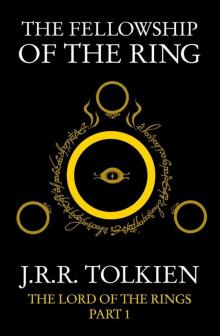 The Fellowship of the Ring
The Fellowship of the Ring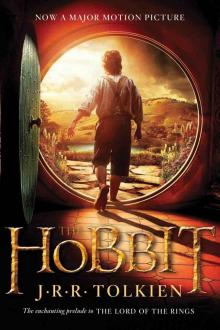 The Hobbit
The Hobbit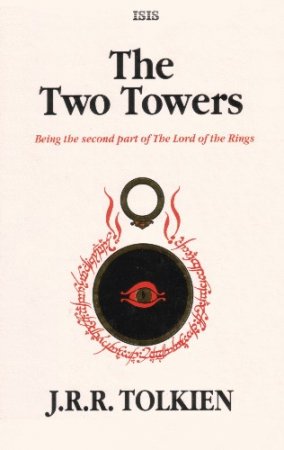 The Two Towers
The Two Towers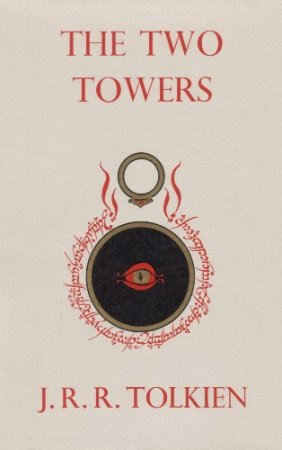 The Return of the King
The Return of the King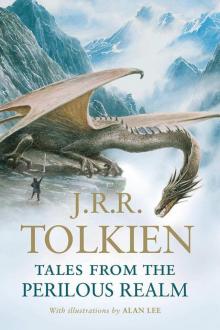 Tales From the Perilous Realm
Tales From the Perilous Realm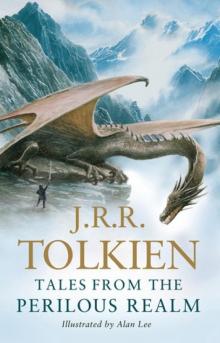 Leaf by Niggle
Leaf by Niggle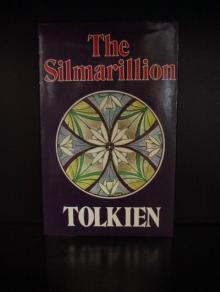 The Silmarillon
The Silmarillon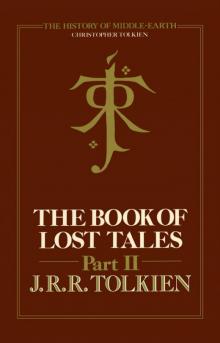 The Book of Lost Tales, Part Two
The Book of Lost Tales, Part Two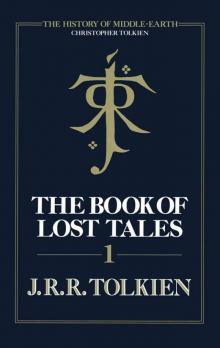 The Book of Lost Tales, Part One
The Book of Lost Tales, Part One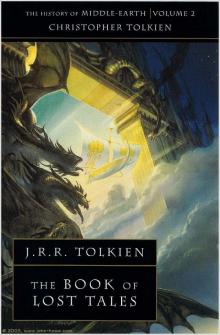 The Book of Lost Tales 2
The Book of Lost Tales 2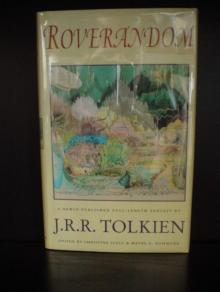 Roverandom
Roverandom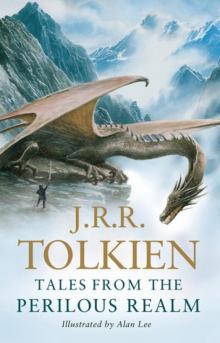 Smith of Wootton Major
Smith of Wootton Major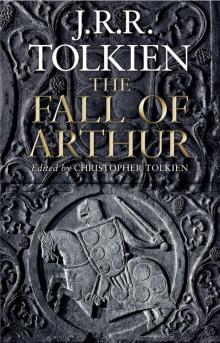 The Fall of Arthur
The Fall of Arthur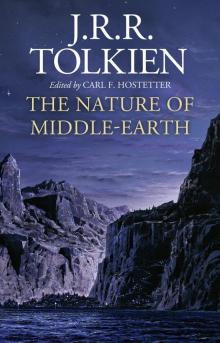 The Nature of Middle-earth
The Nature of Middle-earth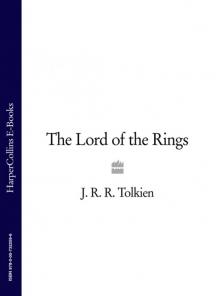 The Lord of the Rings: The Fellowship of the Ring, The Two Towers, The Return of the King
The Lord of the Rings: The Fellowship of the Ring, The Two Towers, The Return of the King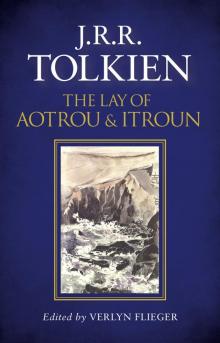 The Lay of Aotrou and Itroun
The Lay of Aotrou and Itroun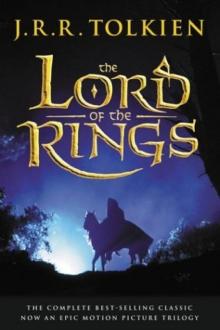 lord_rings.qxd
lord_rings.qxd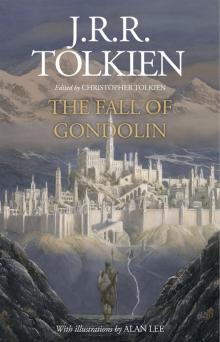 The Fall of Gondolin
The Fall of Gondolin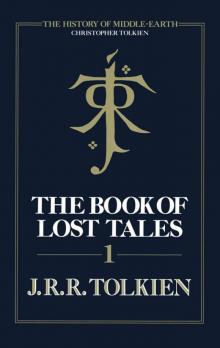 The Book of Lost Tales, Part 1
The Book of Lost Tales, Part 1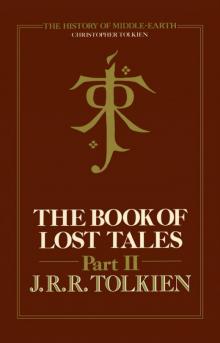 The Book of Lost Tales, Part 2
The Book of Lost Tales, Part 2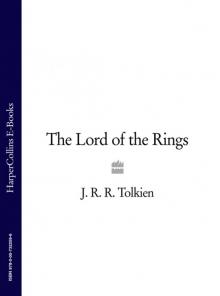 The Lord of the Rings
The Lord of the Rings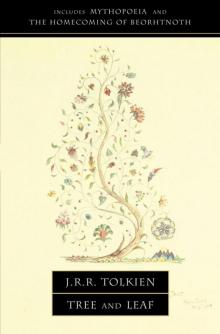 Tree and Leaf
Tree and Leaf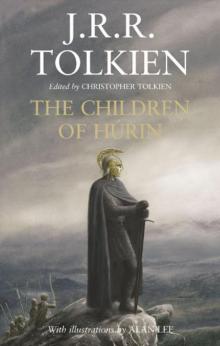 The Children of Húrin
The Children of Húrin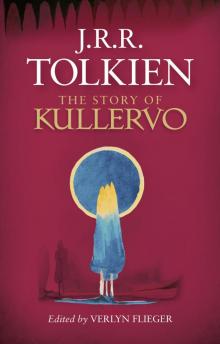 The Story of Kullervo
The Story of Kullervo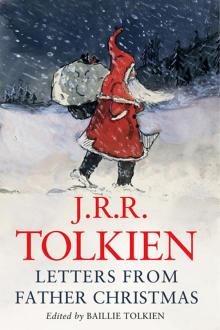 Letters From Father Christmas
Letters From Father Christmas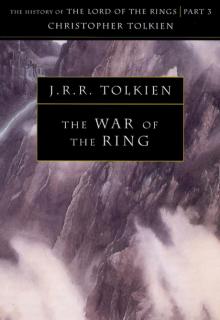 The History of Middle Earth: Volume 8 - The War of the Ring
The History of Middle Earth: Volume 8 - The War of the Ring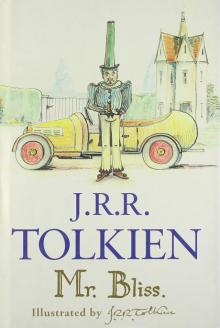 Mr. Bliss
Mr. Bliss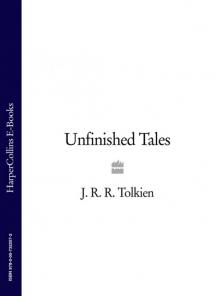 Unfinished Tales
Unfinished Tales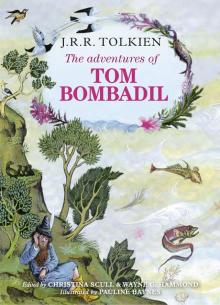 The Adventures of Tom Bombadil
The Adventures of Tom Bombadil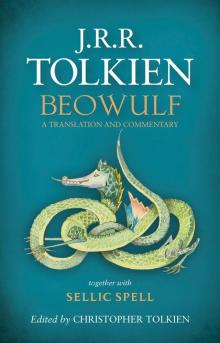 Beowulf: A Translation and Commentary, together with Sellic Spell
Beowulf: A Translation and Commentary, together with Sellic Spell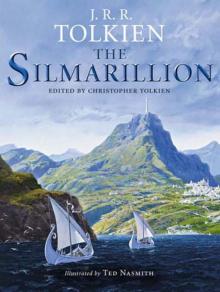 The Silmarillion
The Silmarillion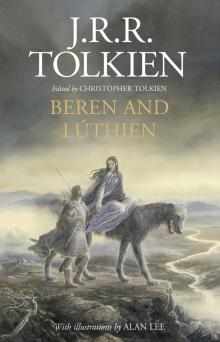 Beren and Lúthien
Beren and Lúthien